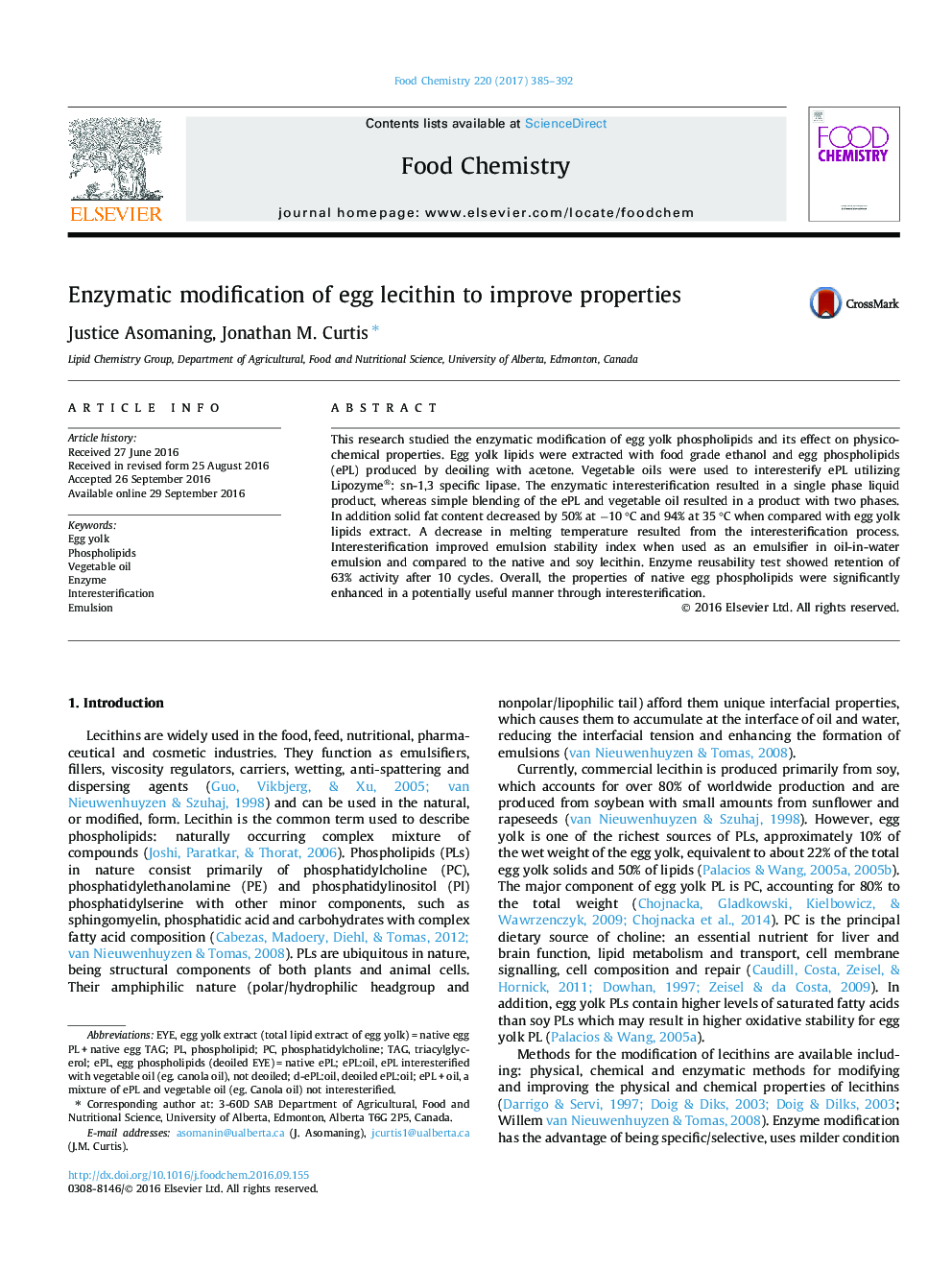| Article ID | Journal | Published Year | Pages | File Type |
|---|---|---|---|---|
| 5133985 | Food Chemistry | 2017 | 8 Pages |
â¢Egg phospholipids were enzymatically interesterified with vegetable oils.â¢Interesterification produced a single liquid phase.â¢The product had a low solid fat content and melting temperature.â¢Interesterification improved the emulsifying properties of egg phospholipids.â¢The immobilized lipase retained 63% of its activity after 10 cycles of use.
This research studied the enzymatic modification of egg yolk phospholipids and its effect on physicochemical properties. Egg yolk lipids were extracted with food grade ethanol and egg phospholipids (ePL) produced by deoiling with acetone. Vegetable oils were used to interesterify ePL utilizing Lipozyme®: sn-1,3 specific lipase. The enzymatic interesterification resulted in a single phase liquid product, whereas simple blending of the ePL and vegetable oil resulted in a product with two phases. In addition solid fat content decreased by 50% at â10 °C and 94% at 35 °C when compared with egg yolk lipids extract. A decrease in melting temperature resulted from the interesterification process. Interesterification improved emulsion stability index when used as an emulsifier in oil-in-water emulsion and compared to the native and soy lecithin. Enzyme reusability test showed retention of 63% activity after 10 cycles. Overall, the properties of native egg phospholipids were significantly enhanced in a potentially useful manner through interesterification.
